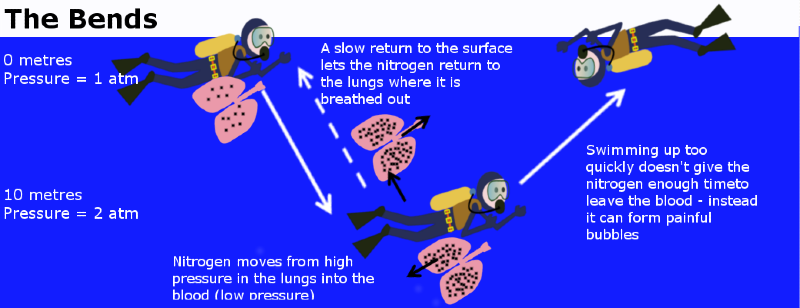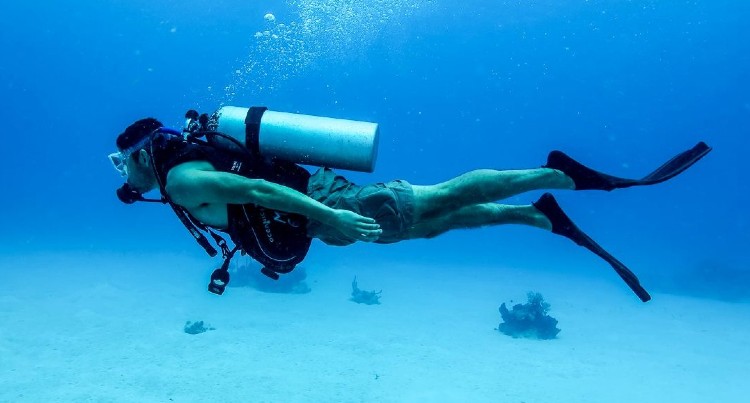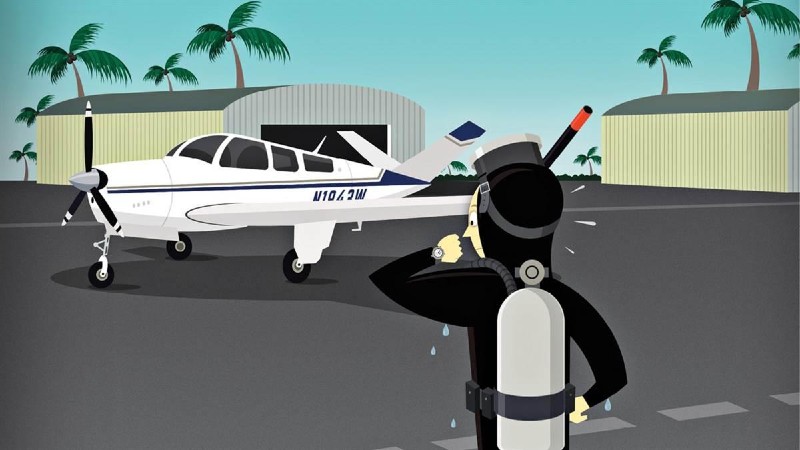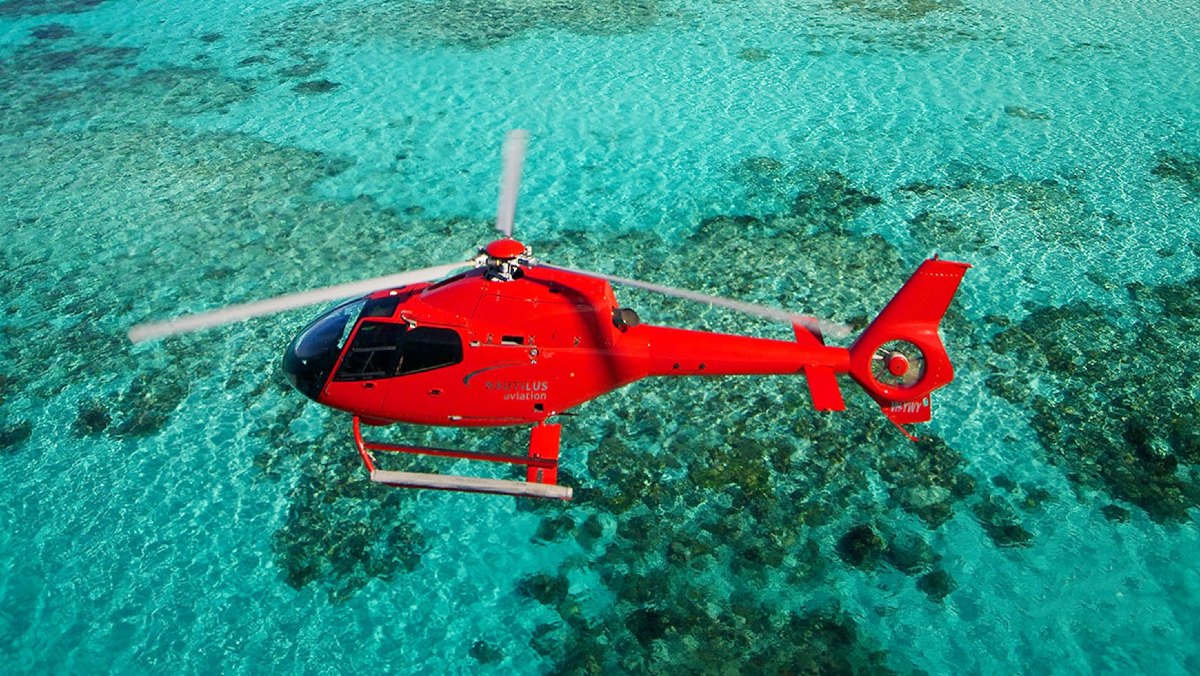It is common for visitors to include Scuba diving and a helicopter tour in their itinerary in touristy places.
Did you know that these two activities, if done within 24 hours, could lead to severe and potentially fatal health complications?
Did you know that even taking a flight back home within 24 hours of diving isn’t advised?
Read on to find out why.
Table of contents
What is Decompression Sickness?
Decompression sickness is also known as DCS, or ‘the bends.’
It happens when the Nitrogen gas in the lungs moves into the bloodstream during a diving session (because of high pressure in the water).
If the diver surfaces slowly, Nitrogen gets time to slowly get back to the lungs, from where it can be breathed out.
This is why divers rise slowly and make intermittent stops (decompression stops) on the way up.
However, if you come out of the water fast, the Nitrogen doesn’t get time to get back to the lungs and instead becomes painful bubbles in the bloodstream.

Depending on many factors – age, body mass, obesity, etc., your body takes a certain amount of time to flush out all of the accumulated excess Nitrogen.
Sometimes the body takes more time than necessary to get back to the state before the diving session, and you start feeling uneasy.
Doctors call this Decompression sickness.
Symptoms of Decompression Sickness (DCS)
When someone has a case of ‘the bends,’ they exhibit some or all of these symptoms.
The degree of impact may vary.
- Localized aches, tingling, or itching
- Swelling in certain parts of the skin
- Unusual depressions in surface tissues
- Nausea and vomiting
- Seizures, dizziness, vertigo
- Loss of balance, hearing, or ear-related problems
- Burning chest pain (under the Sternum)
- Burning feeling around lower back and chest
- Memory loss
- Confusion or abnormal behavior
- Headache
- Double vision, tunnel vision, blurred vision
- Muscle spasms and fatigue
If you experience these symptoms after your dive, you must immediately consult a doctor to ensure you get to a Hyperbaric (recompression) chamber.
Please don’t take this lightly. Here is news of a 38-year-old British tourist struck down by ‘the bends’ on a scuba diving trip in the Maldives.
Not all divers experience DCS

The probability of divers experiencing DCS is pretty low, and that is why so many of us have an intense Scuba Diving session and carry on with the rest of our holiday.
If you’re young and relatively healthy and had an excellent divemaster supervising you, you will do just fine.
The body takes a while to stabilize
If, after your diving session, you haven’t exhibited any symptoms of DCS, that’s good.
But you aren’t out of the woods yet – your body may still be working hard to flush out all of the accumulated excess Nitrogen.
The Nitrogen may still be in a semi-compressed, still-expanding form in your circulatory system.
All this Nitrogen needs to get back into its gaseous state at its own pace, and you can only wait for this to happen.
You can’t hurry this process.
When you take a helicopter tour
When your body isn’t stable yet (that is, it still has Nitrogen in the bloodstream), and you get on a helicopter, you place yourself in danger.
As the helicopter gains height, the pressure around you continues to go down.
You may not feel these symptoms much if you board a plane because they are usually pressurized, but helicopters are often unpressurized.
The longer your pre-flight surface time was, the more Nitrogen you would have expelled from your system — which minimizes the risk of decompression sickness.
But if you haven’t waited long enough, you will experience what is known as delayed Decompression sickness (DCS) when you fly.
The right interval between a dive and flying

It is better to ensure a 24-hour gap between all kinds of diving experiences and getting airborne – in a helicopter or airplane.
There is no consensus on the number of hours one has to wait after deep water diving before boarding an airplane or helicopter.
And that’s because underwater diving can be of varying duration, depths, number, etc. and different people’s bodies stabilize at different speeds.
The Divers Alert Network (DAN) recommends a 12-hour minimum surface interval before flying.
The Professional Association of Diving Instructors suggests a 12-hour break after a single dive or a 18-hour break after multiple dives before taking off in a chopper or an airplane.
It is always safer to have a 24 hours gap between your scuba diving experience and a helicopter tour.
Recommended Reading
# Experiencing your first helicopter flight
# Clothes to wear during helicopter tours
# How to overcome fear of flying
# Why helicopter tours are an excellent activity
# FAQs about Helicopter tours
